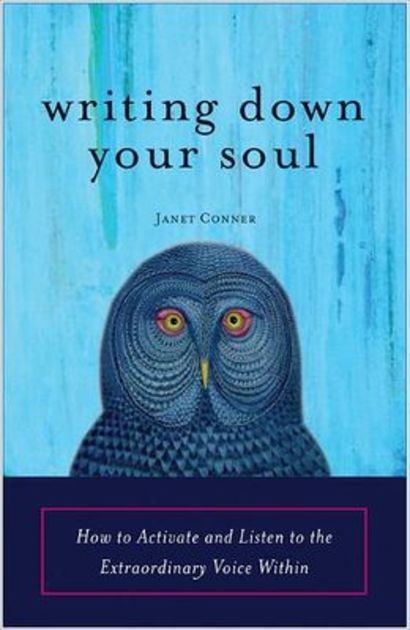
Originally published Queens Jewish Link 2016
Writing Down Your Soul: How to Activate and Listen to the Extraordinary Voice Within by Janet Conner
Writing Down Your Soul is a guide to journaling in order to express intense emotions and gain clarity. Beware: this book is fluffy! It's hard to discuss spiritual or inner concepts without getting fluffy because they are, by definition, on a different plane of existence. That being said, there are many down to earth benefits of writing. The author gives specific instructions in order to demystify how to write to improve your life.
Personally, I find writing supremely helpful in being able to pin down reasons for what I am feeling at the moment, and assists in relieving the stress I may be experiencing. Writinghelps me gain a more balanced perspective on stressful events and figure out what actions I can take to fix things. Because I am such a big fan of writing in my own life, I often urge others to write. However, people ask "What should I write?" "What will it do for me?"
Dr. James Pennebaker is the leading researcher on the benefits of writing, especially about stressful or traumatic events. Pennebaker has done research through the University of Texas about expressive writing, meaning writing about your deepest feelings and thoughts; not necessarily the content or details of events. Outcomes of Pennebaker's studies on expressive writing include both physical and emotional benefits. Writings about secrets that you haven't told anyone else can help relieve anxiety that may be rooted in the secret. Consistent expressive writing has been shown to lead to improved immune system functioning, academic scores, working memory, and depressive symptoms, among others. (See this article for a concise overview of studies completed on expressivewriting: Emotional and physical health benefits of expressive writing by Karen Baikie and Kay Wilhelm, published in Advances in Psychiatric Treatment August 2005).
Connor teaches readers how to write in order to access an inner voice. She encourages setting an intention for your writing, like "I am ready to listen," or "I want to learn more about myself". You should set aside at least a few minutes daily to write; making it a routine is best. Find a way to make sure that your journal will not be read by others so that you will feel comfortable and safe when writing. Write quickly about whatever comes to mind, and don't pay attention to things like penmanship or grammar. Don't judge what you are writing. Connor discusses how your "inner critic" can block you from writing freely, by making you think things like "I'm too busy to write," "I shouldn't write that," or "I don't know what to write." Write about your current struggles and your deepest feelings about it. Here comes the fluff: When you write freely and consistently, you will get in touch with yourfeelings and realize more about your true goals and desires. You will feel connected to something bigger if you make space for it. You will feel listened to, taken care of and loved. You will be guided to be your best self.
When I say "inner voice", "higher power", or "prayer", I mean this in the most non-denominational way. Spirituality and prayer are highly personal. Even though I am assuming many readers of this column are Jewish and religious, we all have a different conception of what spirituality means to us and what G-d means to us. So "inner voice" can mean any of the following for you: G-d's voice, your own true voice, or anything else that calls to you. When journaling, it doesn't matter what your personal idea of prayer or inner voice is. Writing will help you get in touch with something deeper or clearer, even though that something may be different for everyone.
 Previous
Previous

